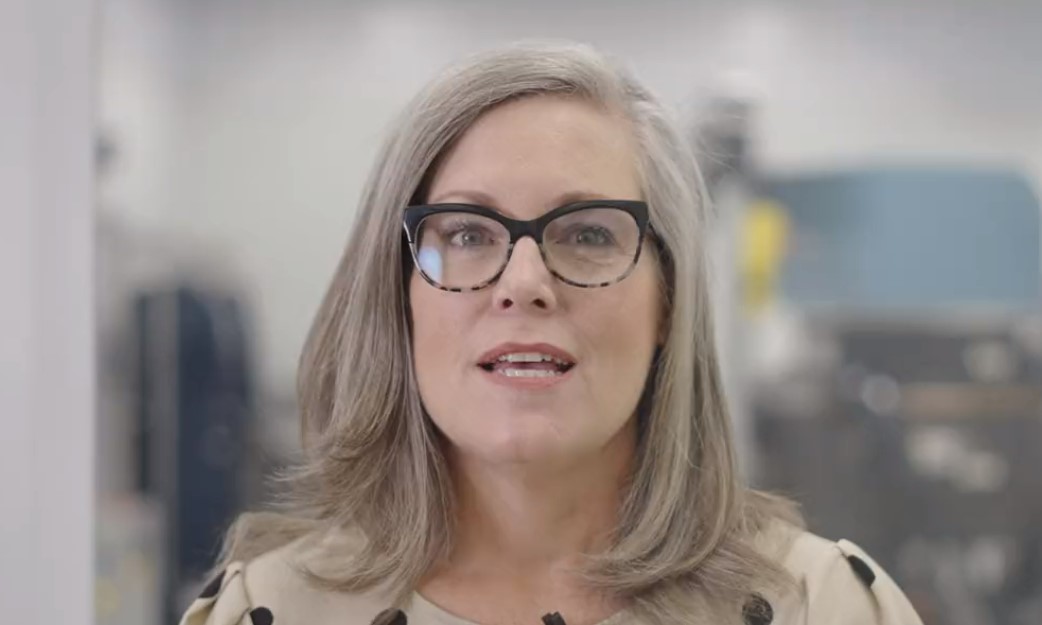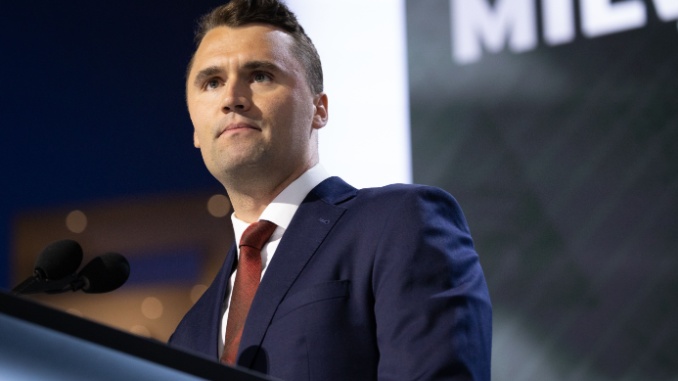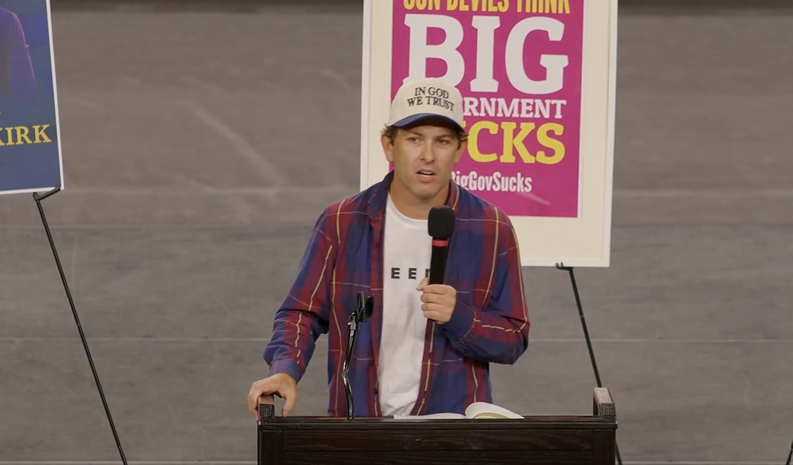
by Staff Reporter | Sep 18, 2025 | Education, News
By Staff Reporter |
The Department of Education (ED) announced a significant new investment in school choice.
On Monday, ED pledged “historic” investments into charter schools, American history and civics programs, Historically Black Colleges and Universities (HBCUs), and Tribally Controlled Colleges and Universities (TCCUs).
The department repurposed funding from Diversity, Equity, and Inclusion programs to fund these investments.
ED Secretary Linda McMahon said the funds were reserved for programs “which support student success.”
“The Department has carefully scrutinized our federal grants, ensuring that taxpayers are not funding racially discriminatory programs but those programs which promote merit and excellence in education,” said McMahon. “The Trump Administration will use every available tool to meaningfully advance educational outcomes and ensure every American has the opportunity to succeed in life.”
ED also pledged over $160 million to the American History and Civics Education National Activities — Seminars for America’s Semiquincentennial program. 2026 will mark the 250th anniversary of the founding of the United States of America.
ED will award American history and civics grants for seminars that “directly commemorate the 250th anniversary of the Founding of the United States.” Eligible seminar programming must make a feature study of American political tradition: the ideas, institutions, and texts instrumental to this nation’s constitutional government and history. The seminars must also be based on “the first principles of American founding.” Eligible seminars must include the Declaration of Independence, Constitution, and Bill of Rights.
$500 million in grants will be distributed to charter schools for the 2025 fiscal year. Another total of nearly $500 million collectively will be sent as one-time investments to HBCUs and TCCUs.
As justification for the reallocation of millions in government grants, ED cited the poor student outcomes exhibited by the 2024 National Assessment of Educational Progress (NAEP) scores released earlier this month. Student NAEP scores reached “historic lows” throughout K-12.
Nationally, average NAEP scores were lower across all three assessments: science at grade 8, mathematics at grade 12, and reading at grade 12.
Arizona students scored lower across the various subjects than the average national scores for both fourth and eighth graders. Fourth grade math scores averaged 232, compared to the national average of 237; fourth grade reading scores averaged 208, compared to the national average of 214; and fourth grade science scores averaged 149, compared to the national average of 153.
Eighth grade math scores averaged 270, compared to the national average of 272; eighth grade reading scores averaged 254, compared to the national average of 257; and eighth grade science scores averaged 148, compared to the national average of 153.
McMahon called the NAEP results “devastating,” and indicative of a trend of generations unprepared for adult life. McMahon questioned the spending of billions annually with such dismal results, and pledged to claw back some of those funds to invest in individual states and educational choice.
“At a critical juncture when students are about to graduate and enter the workforce, military, or higher education, nearly half of America’s high school seniors are testing at below basic levels in math and reading. Despite spending billions annually on numerous K-12 programs, the achievement gap is widening, and more high school seniors are performing below the basic benchmark in math and reading than ever before,” said McMahon. “If America is going to remain globally competitive, students must be able to read proficiently, think critically, and graduate equipped to solve complex problems. We owe it to them to do better.”
In May, ED pledged to increase charter school funding by $60 million for a program budget total of $500 million.
AZ Free News is your #1 source for Arizona news and politics. You can send us news tips using this link.

by Staff Reporter | Sep 18, 2025 | News
By Staff Reporter |
Arizona voters have low confidence in their elected leaders at both the state and national levels, according to a new poll.
The poll from Noble Predictive Insights, conducted in August, surveyed over 900 voters across the state.
Democrats have the least confidence in the state (56 percent), followed closely by independents (55 percent), and then Republicans (52 percent).
The poll also asked Arizonans if they thought the state is better off now than it was four years ago with the COVID-19 pandemic, wildfires, and the Maricopa County ballot audit.
Most of the respondents said they preferred the state of the state and nation four years ago compared to the present. Mike Noble, founder and CEO of Noble Predictive Insights, said in a press release these latest polling results indicate that Arizonans don’t believe the government they elected is delivering on its promises.
“Arizonans are signaling that they want to see tangible progress – whether it’s cost of living, housing, water, or the ability of leaders to work past gridlock, voters are looking for reasons to feel the state and the country are on a better path. Right now, they just don’t see it,” said Noble.
50 percent of Democrats expressed a preference for the 2020 state of Arizona to now, followed by 40 percent of independents, and 37 percent of Republicans.
The results didn’t vary too much across generational demographics. About one-quarter of voters across age groups expressed satisfaction with the present state of Arizona, and 40 percent across generational groups expressed dissatisfaction with the present.
When asked about the state of the nation four years ago compared to now, 74 percent of Democrats said the country is worse now, followed by 54 percent of independents, and 24 percent of Republicans.
The majority of Republican subgroups among respondents expressed greater satisfaction with the present state of the nation compared to four years ago.
Younger respondents (aged 18 to 29) had the most pessimism about the trajectory of the country. 23 percent of young voters expressed greater satisfaction with the country presently compared to four years ago. 53 percent of young voters expressed much less satisfaction.
Those above the age of 65 had less of a divide. 42 percent said the country is better off now than it was four years ago, and 50 percent said the country is worse off.
The top five concerns for respondents were, in order: affordable housing (38 percent Republican, 41 percent Democrat, 54 percent independent); inflation (48 percent Republican, 45 percent Democrat, 38 percent independent); immigration (62 percent Republican, 29 percent Democrat, and 39 percent independent); health care (34 percent Republican, 41 percent Democrat, and 40 percent independent); and education (23 percent Republican, 27 percent Democrat, and 23 percent independent).
Those outside the top five, in order, were: taxes, unemployment rate, climate change, gun policies, abortion, income gap, national defense, something else not listed, and LGBT rights.
Rankings for those categories were established by summarizing the totals from the responses of the three voter groups.
Overall, respondents expressed the opinion that immigration was overrepresented in political discourse and elected officials’ focus.
AZ Free News is your #1 source for Arizona news and politics. You can send us news tips using this link.

by Staff Reporter | Sep 17, 2025 | News
By Staff Reporter |
Requests to establish Turning Point USA (TPUSA) chapters exploded in the days following the assassination of its CEO and founder, Charlie Kirk.
Kirk, a devout, professed Christian and Phoenix native, was a month shy of turning 32 years old at the time of his death. Kirk left behind a wife — CEO of Proclaim Streetwear and Bible in 365, and former Miss Arizona USA, Erika Kirk (née Frantzve) — and two young children.
Andrew Kolvet, executive producer for “The Charlie Kirk Show,” said on Sunday that TPUSA received over 37,000 requests for new chapters.
Prior to Kirk’s assassination, TPUSA reported having approximately 900 college chapters and 1,200 high school chapters, or about 3,500 chapters total.
“The organization has received over 32,000 inquiries in the last 48-hours to start new campus chapters,” said Kolvet. “Charlie’s vision to have a Club America chapter (our high school brand) in every high school in America (around 23,000) will come true much much faster than he could have ever possibly imagined.”
Kolvet also reported to Fox News that he personally received “hundreds of offers” to work or volunteer for TPUSA.
Many have reported witnessing a massive increase in church attendance the Sunday following Kirk’s assassination, accompanied with online postings of baptisms directly influenced by Kirk.
Donations also poured in to support Kirk’s widow and two children.
One GiveSendGo for the Kirk family sits at over $4.9 million as of Monday, with a goal of $6 million. ALP Pouches, a nicotine pouch company, organized the fundraiser.
Another GiveSendGo organized by TPUSA has raised over $1.8 million. TPUSA is also soliciting donations to continue its work and grow.
Another GiveSendGo was launched by conservative pundit Glenn Beck as a resurrection of the 912 Project. That fundraiser has raised over $500,000.
Several smaller fundraisers have also cropped up online and collected thousands: over 200 on GoFundMe as of Monday. The fundraisers pledge money to the Kirk family, TPUSA, or creating memorials.
Kirk was shot and killed on Sept. 10 at Utah Valley University during another one of his viral campus debates, part of his “American Comeback Tour.”
Several days following Kirk’s death, law enforcement arrested Tyler Robinson, 22, for the assassination.
Per the FBI, Robinson had an “obsession” with Kirk and “hated” the conservative evangelist. FBI Director Kash Patel said that Robinson told another individual ahead of the assassination via text that he had an opportunity to kill Kirk and would do so because of Kirk’s Christianity.
“He had a text message exchange with another individual in which he claimed that he had an opportunity to take out Charlie Kirk — and he was going to do it because of his hatred for what Charlie stood for,” said Patel.
FBI Deputy Director Dan Bongino told Fox News that it was “fairly obvious to everyone” that Kirk’s assassination was “an ideologically motivated attack.”
In addition to the messaging evidence, ammunition recovered at the assassination site indicated allegiances to transgender and anti-fascist ideologies. Robinson’s romantic partner, his roommate, was an individual who identified as a “furry” and a transgender woman.
AZ Free News is your #1 source for Arizona news and politics. You can send us news tips using this link.

by Matthew Holloway | Sep 17, 2025 | News
By Matthew Holloway |
Arizona House Ethics Chair Lupe Diaz (R-LD19) blasted Democrats Friday for “weaponizing” complaints against Rep. John Gillette (R-LD30). Democrat Reps. Oscar De Los Santos, Nancy Gutierrez, Quanta Crews, and Stacey Travers filed a complaint on September 10, citing an interview from Gillette and social media posts. They called his remarks “offensive” and “unbecoming of an elected official,” noting his criticism of radical Islamists and Sharia law.
In a string of posts to X referred to in the Democrats’ complaint, Rep. Gillette wrote, “Islamophobia is a construct of the Marxist left I reject. I hear them state that they stand with Hamas and Iran, they want to bring Sharia Law to the US. They chant death to US. I have years of direct experience with these savages. [Their] own religion preached convert or die. F**K EM. If they want here to become the s**t hole they left… they can go home. The democrats support them. DEMOCRATS HATE AMERICA!”
Responding to subsequent comments, he clarified his position, stating, “I was critical of their policies. “Shiria(sic) Law and convert or die” are policy positions of Islam. Democrats want to install Socialism as a policy. I criticize both as they are repugnant to the Constitution. My reply is based on experience in the Middle East and Soviet Union. Not some leftist theory cooked up in a liberal college classroom with the same professors and systems that say there are 32 genders.. grow up and see reality…. remember Covid when you were told to wear a face covering, not work. The left forced this on us, not people like me.”
In their complaint, the Democrat lawmakers claimed, “Rep. Gillette referred to Muslims as ‘f***ing savages’ who don’t properly ‘assimilate’ into American culture. By referring to Muslims as ‘savages’ and ‘terrorists,’ Rep. Gillette dehumanized them and demonstrates his bigotry against an entire religious group, which constitutes about 1% of the population in this state.”
In a letter responding to the Democrat representatives, Chairman Diaz wrote that “remarks, statements, or opinions by a member, alone, are not traditionally the subject of an ethics inquiry. Subject to our House Rules regarding debate, members—like any other citizen—have a First Amendment right to the freedom of speech, as well as a right to freely speak under Article 2, Section 6 of the Arizona Constitution.”
Citing the assassination of Charlie Kirk, Diaz added, “Moreover, particularly in light of recent events, it is imperative that government institutions protect the freedom of speech, rather than take actions to silence, punish, or censor speech simply because someone might find it offensive or disagreeable. The inquiry you request this Committee to make would result in no more than an inquiry into the sincerity of Representative Gillette’s beliefs or a debate into the merits of those beliefs— neither for which an Ethics Committee hearing is the proper venue.”
Diaz concluded, “It would be inconsistent with constitutional principles—and unprecedented, based on past practices of previous House Ethics Committee Chairmen presented with similar complaints to undertake any further review or investigation of your complaint. Accordingly, I will not take further action on this matter.”
He further added an admonishment to the Democratic representatives, urging them to review Rep. Gillette’s response to their press release announcing the complaint, entitled “Defending America Against Radical Ideologies and Political Hypocrisy,” and added, “To the extent that you have any lingering concerns about his statements, it would be prudent to engage in civil discourse rather than weaponizing the House Ethics Complaint process.”
In the statement, Gillette explained in part, “Immigrants are welcomed here as guests who can become fellow citizens, and gratitude, respect, and loyalty to our nation are the minimum expectations. Yet too often, what we see instead is a demand that Americans change our culture, our speech, or our religion so as not to ‘offend’ those who chose to come here. That is not assimilation—it is subversion. I will treat every human being with dignity and respect. But I will not, and Americans must not bow to the demands of those who place their foreign ideologies above our Constitution.”
Gillette defined the group he opposes as “radical Islamists,” who seek “the establishment of a worldwide caliphate,” adding, “While some [in] the Muslim world may practice their faith peacefully, many more have weaponized the concept of jihad to justify terrorism, mass murder, and political conquest.”
Matthew Holloway is a senior reporter for AZ Free News. Follow him on X for his latest stories, or email tips to Matthew@azfreenews.com.

by Jonathan Eberle | Sep 17, 2025 | Economy, News
By Jonathan Eberle |
Arizona residents could collectively lose millions of dollars to fake gambling websites this fall, according to a new study analyzing Federal Trade Commission (FTC) scam reports. The report, conducted by online gaming marketplace Chicks Gold, found that Arizona consumers reported $7.9 million in losses between April and June of this year from scams linked to fake gambling and gaming sites. Analysts warn those numbers could rise sharply as the NFL season, the most bet-on sport in the United States, fuels a wave of online wagering.
“Scammers know there’s likely to be a surge in inexperienced bettors searching online for wagering platforms,” said Al Alof, CEO of Chicks Gold and spokesperson for the study. “That makes them especially vulnerable to fake sportsbooks or offers that appear too good to be true.”
The study examined scams across five FTC subcategories connected to fraudulent gambling platforms: malware and exploits, online shopping, tech support, social networking, and prizes, sweepstakes, and lotteries. Nationally, 106,531 reports were filed in Q2, totaling nearly $192 million in losses, or an average of $1,965 per report. Arizona’s losses were significantly higher: 2,830 reports led to nearly $7.95 million stolen, averaging $2,811 per report—43% higher than the national average.
The most damaging category for Arizona residents was prizes, sweepstakes, and lotteries, which accounted for $4.1 million lost across just 408 reports, averaging more than $10,000 per incident. That placed Arizona sixth in the nation for per-report losses linked to these types of scams, behind Montana, Maine, South Dakota, Wyoming, and North Dakota.
According to the study, fraudulent gambling and gaming operations exploit consumers in several ways:
- Malware and exploits: Fake casino sites that prompt users to download spyware disguised as “mods” or “cheat tools.”
- Online shopping scams: Fake sites selling in-game items, currency, or memberships that never arrive.
- Tech support fraud: Pop-ups or sham help desks convincing players to share sensitive information.
- Social networking scams: Fake or hijacked profiles distributing phishing links in gaming communities.
- Prizes, sweepstakes, and lotteries: Lures promising jackpots or loot boxes that require upfront payment or personal data.
“These scams thrive on community and urgency,” Alof said. “Gamers searching for new releases or fans eager to place bets can be tricked into handing over money or sensitive information.” The rise in gambling scams has also been noted by the Better Business Bureau (BBB), which reports that complaints about online gambling platforms more than doubled since 2023. Users described problems ranging from malfunctioning slot games and altered wagers to deceptive ads and phishing attempts.
To protect themselves, Alof urged consumers to:
- Verify licensing and URLs: Legitimate sportsbooks are licensed by state regulators. Misspelled domains or unofficial app stores are red flags.
- Avoid unrealistic offers: “Guaranteed wins” or oversized bonuses are often bait for scams.
- Use secure payments: Credit cards or PayPal provide better protection than wire transfers or gift cards. Enabling two-factor authentication also reduces risk.
Analysts caution that both sports bettors and traditional gamers face exposure. Beyond the NFL betting surge, Alof noted that the release of popular video games creates another avenue for fraud. When legitimate gaming sites crash under demand, players may turn to unverified download links, which scammers exploit. With Arizona already posting losses above the national average, experts warn vigilance will be crucial in the months ahead.
Jonathan Eberle is a reporter for AZ Free News. You can send him news tips using this link.

by Matthew Holloway | Sep 16, 2025 | News
By Matthew Holloway |
Turning Point USA held a vigil for Charlie Kirk at the Desert Financial Arena at Arizona State University on Monday. Thousands of people, young and old, showed up to honor the life of Kirk.
According to an email from Turning Point USA’s ASU Chapter, the vigil to remember Kirk, who was assassinated on Wednesday, was held under high security conditions with a ‘clear bag’ policy in effect and a prohibition on any banners, flags, and signs of any shape or size in the arena.
Initially, student attendance was prioritized on Sunday, September 14th, with general attendees asked to join a waiting list; however, by Sunday evening, the restriction was removed, and all attendees were invited to RSVP.
Tyler Bowyer, COO of Turning Point Action, wrote in a post to X, “Please join us tonight to celebrate his life and pray. We have a long week ahead of us and the entire Turning Point ecosystem feels your love and prayers. The students in particular deserve to feel it, especially in such a memorable place for us. ASU!”
In an email, Dr. Owen Anderson, faculty advisor of the chapter wrote:
“I hope you can join us tonight. To understand what Charlie Kirk was doing, you have to remember his context.
Charlie was debating edgy university students who often used profane language and hurled insults at conservatives and Christians. He wasn’t playing cards at a retirement home.
In a setting where anti-Christian professors were never challenged, and where many Christian intellectuals felt pressured to compromise with leftism and remain silent, Charlie Kirk changed all of that.
Suddenly, conservative and Christian students felt they could speak up and defend their beliefs. They saw how wrong it was to pay tuition for ideological training camps. Charlie inspired them to have courage. And being courageous is loving because it presents the truth to students who are captive to unbelief.”
Matthew Holloway is a senior reporter for AZ Free News. Follow him on X for his latest stories, or email tips to Matthew@azfreenews.com.






